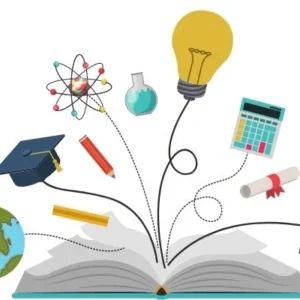In Ethiopia, major reforms to the technical and vocational education and training (TVET) system are helping young women gain practical skills, pursue employment, and start small businesses. Supported by the World Bank–backed EASE and EASTRIP projects, the reforms aim to improve training quality, promote inclusion, and better align education with labor market demands.
At Misrak Polytechnic College in Addis Ababa, 20-year-old Hanna Samuel is studying carpentry—a field often seen as male-dominated. “People told me carpentry is men’s work, but I was interested, so I registered,” she said. Hanna is now learning to operate woodworking machines, read technical drawings, and build furniture, with hopes of launching her own carpentry business one day.
The Education and Skills for Employability (EASE) Project, launched in 2024, is helping colleges like Misrak Polytechnic upgrade facilities and expand access. It also sets clear inclusion benchmarks, aiming for 50% female participation in both short- and long-term training programs, while targeting rural youth, internally displaced persons, and other underserved groups. By offering short-term training to 100,000 young people, the program combines technical instruction with digital literacy, financial education, and soft skills—with the goal of ensuring that at least 70% of graduates find work or start businesses within a year.
Success stories are emerging across different trades. Rediet Bezabih, a graduate of Misrak Polytechnic, discovered her talent for leatherwork after initially planning to study hospitality. She now runs her own workshop producing leather bags and wallets for local shops and international buyers, balancing her business with family responsibilities.
At Holeta Polytechnic College, near Addis Ababa, Level III student Lalistu Debela earned national recognition through the East Africa Skills for Transformation and Regional Integration Project (EASTRIP). Her innovative project using banana chips and peel powder won first place at the Fourth National Skills Competition, showcasing how simple processing techniques can reduce food waste and improve nutrition. With plans to expand her idea into a small business with local farmers, Lalistu is an example of how TVET reforms are fostering entrepreneurship and innovation.
Together, EASE and EASTRIP represent complementary efforts to transform Ethiopia’s vocational training system. While EASE emphasizes short-term training, entrepreneurship, and inclusion, EASTRIP strengthens institutional capacity, regional collaboration, and industry partnerships. Both aim to make training more responsive to employer needs and accessible to women and marginalized groups.
The experiences of Hanna, Rediet, and Lalistu highlight how access to practical, market-relevant training can empower young people, reduce social barriers, and create new economic opportunities. By equipping youth with skills for both employment and enterprise, Ethiopia’s TVET reforms are laying the foundation for stronger communities, broader participation in the workforce, and long-term economic resilience.







